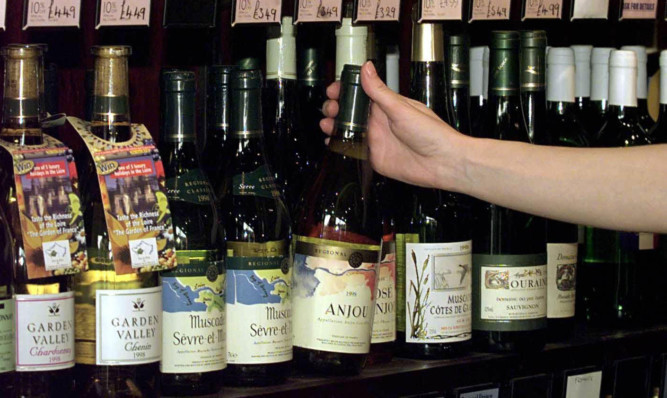
Are Scotland’s streets awash with alcohol?
Researchers from Edinburgh and Glasgow Universities think they are. A report last week found dozens of pubs, offies, supermarkets and restaurants crammed into some town centres.
Edinburgh’s Royal Mile has the biggest concentration with a whopping 384 pubs and restaurants and 54 off-sales. The average Edinburgher is 400 yards from an alcohol outlet. A Glaswegian is just a 10 minute walk from 15 of them.
That may seem astonishing. It’s also serious.
According to the academics, death rates from alcohol-related diseases double in the areas with the highest concentration of licensed premises. And the Royal Mile apart they tend to be our poorest neighbourhoods.
Sobering stuff. But can it be true?
Well according to Dr James Nicholls of Alcohol Focus Scotland the charity which commissioned the report booze consumption has been rising steadily since the 1950s with a big rise during the Thatcher years.
Current figures suggest one in 20 deaths and one in every 20 hospital admissions in Scotland is down to alcohol. That’s a 36% improvement on 2004 but it’s still grim and worse than the rest of UK and Europe.
The Scottish Government’s Director of Justice says the cost of alcohol-related harm in one year could finance a decade’s spending on Scotland’s prisons, courts and community justice.
But critics say the research isn’t conclusive. They suggest the real problems are inequality, deprivation and depression. Alcohol retailers, they say, are simply responding to demand selling more booze in outlets where folk are most likely to be drowning their sorrows.
I’m not sure that’s good enough. With booze cheaper than bottled water and far easier to access, a binge-drinking (and fast-food eating) culture has become normal in some parts of Scotland. You can quibble over the details but there’s no doubting the overall message. The more alcohol outlets around there are, the more likely Scots (particularly teenagers) are to be hospitalised through drink.
Mind you there is a problem with the research. Licensing boards don’t know how much alcohol each outlet actually sells. So it can be easier to refuse a restaurant or pub licence than a powerful supermarket lots of money and jobs are tied up with supermarket expansion.
A councillor told me recently a bit of ground might fetch £5million for housing but £30 million for a new supermarket.
Which one to choose? In these cash strapped times, there’s rarely a contest. And yet a supermarket may shift gallons of cheap alcohol a day maybe even more with online sales while a licensed restaurant sells just a couple of bottles of wine a week. Is it right that they are both regarded as equally potent alcohol outlets?
Secrecy is the name of the game when it comes to selling booze in Scotland. The Government has a register of every tobacco outlet but there’s none for alcohol sales. So it took the researchers nine months to tease statistics from the wary licensing boards. No wonder the public is put off reporting concerns about overprovision the “court” atmosphere of some board meetings is intimidating, procedures are drawn out and many licences are “rolled over” so people aren’t sure when to object.
Enough already. It’s time for the Government to set up a booze sales register and require all outlets especially supermarkets to state how much they aim to shift (even if that information remains confidential) as part of the licensing process.
“You’ve got tae drink.”It was a funny verdict on Scotland once.
Now it’s just sad.

Enjoy the convenience of having The Sunday Post delivered as a digital ePaper straight to your smartphone, tablet or computer.
Subscribe for only £5.49 a month and enjoy all the benefits of the printed paper as a digital replica.
Subscribe